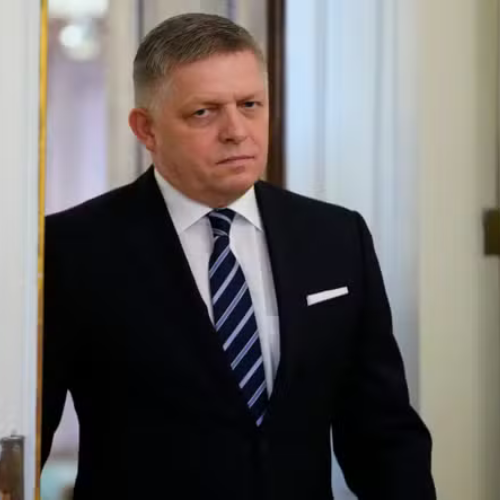A serious dispute between Slovakia and Ukraine has put their relationship on shaky ground. The problem began when Ukraine decided to block the transit of Russian gas through its pipelines to Slovakia. This gas is crucial for Slovakia, as it powers homes, businesses, and factories across the country. Ukraine’s refusal has left Slovakia in a difficult position, and its government is now taking action in response.
To show its disapproval, Slovakia has announced that it may stop providing military aid to Ukraine. Over the past year, Slovakia has sent weapons and other support to Ukraine to help it in its conflict with Russia. But now, this assistance is being withdrawn, signaling how deeply Slovakia values its energy security.
Gas transit isn’t just an economic issue—it’s tied to larger political tensions in the region. For years, Slovakia has relied on Russian gas flowing through Ukraine. This setup has been stable for the most part, but Ukraine’s sudden decision to block the transit route has created new risks for Slovakia. Energy experts warn that if this issue isn’t resolved quickly, it could impact millions of people in Slovakia who depend on gas for heating and electricity.
High-Level Talks Between Slovakia and Russia
In an effort to address the situation, Slovakia’s Prime Minister traveled to Moscow for an important meeting with the Russian President. This marked the first in-person meeting between the two leaders in nearly seven years. The talks focused on the gas transit dispute and its potential impact on Slovakia’s energy security.
Gazprombank Sanctions: EU Mulls Luxembourg Solution for Gas Payments
Russia has long depended on gas transit routes through Ukraine to deliver energy to Europe. However, relations between Russia and Ukraine have been severely strained for years, and Moscow has been exploring other ways to send its gas to European countries. Slovakia’s meeting with Russia shows how seriously it is taking the transit issue—and how far it is willing to go to secure its energy needs.
During the talks, the Slovak Prime Minister reportedly expressed frustration with Ukraine’s decision to block the gas. While Slovakia has supported Ukraine in the past, particularly with military aid, its leaders are now signaling a shift in their priorities. Energy security appears to be taking precedence over regional alliances, especially when it comes to ensuring that Slovak households and industries have reliable access to gas.
Possible Ripple Effects Across Europe
Slovakia’s actions could have far-reaching consequences for the region. Hungary, another country heavily reliant on Russian gas, is closely watching the situation. Both Slovakia and Hungary have been critical of some of Ukraine’s policies, including how it manages gas transit. Now, with Slovakia withdrawing its military aid, Hungary might also reconsider its position on supporting Ukraine.
Rule of Law Concerns Prompt Brussels to Consider Sanctions on Slovakia
This dispute could even influence European Union policies. Slovakia and Hungary have previously expressed doubts about EU sanctions against Russia, arguing that they harm their own economies more than they affect Russia. If Slovakia and Hungary decide to block the renewal of sanctions, it could weaken the EU’s united stance on the issue.
At the center of the dispute is Ukraine’s decision to block the gas transit route. According to energy analysts, Ukraine made this move because it wants to change the terms of how Russian gas flows through its territory. However, this sudden escalation has angered Slovakia and other neighboring countries, who view the transit route as essential for their energy needs.
Slovakia’s decision to halt military aid is a clear sign of its frustration. By taking this step, Slovakia is sending a strong message that energy security cannot be ignored, even in the midst of broader political conflicts.
This situation highlights how interconnected energy, politics, and security are in Europe. For now, Slovakia’s withdrawal of military support to Ukraine and its discussions with Russia show that the gas dispute is far from just an economic issue—it is shaping alliances and dividing opinions across the region. The tension between Ukraine and Slovakia serves as a reminder of how critical energy resources are to modern diplomacy and the delicate balance of power in Europe.


